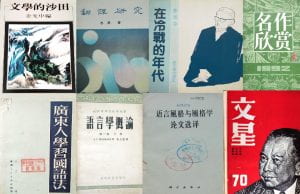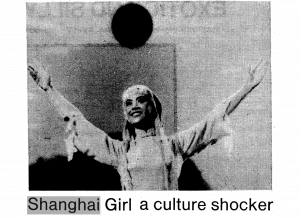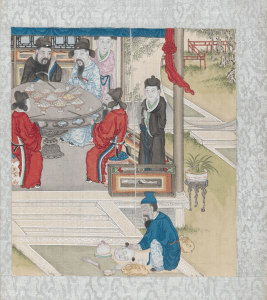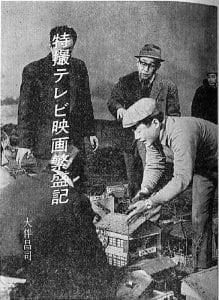Ph.D. Candidate, EALC
The Stylistic Complaint: Rereading Modern Chinese Literature in Hong Kong, Macau, and Taiwan
Time: Friday, June 4, 6-8 pm CT
Zoom Registration: https://uchicago.zoom.us/meeting/register/tJIsdu6sqzMtH9yxqmjZNyRaHJDbnkueK6AR
The Art and Politics of East Asia (APEA) workshop is proud to host Yueling Ji (Ph.D. Candidate, EALC), who will be presenting her dissertation chapter “The Stylistic Complaint: Rereading Modern Chinese Literature in Hong Kong, Macau, and Taiwan.” Elvin Meng (Ph.D. Student, Comparative Literature) will offer a response. Yueling summarizes her chapter as follows:
Each chapter of my dissertation studies a case in the history of 20th-century Chinese literary criticism where “style” became an important object of literary analysis. In this chapter, the main figures are linguists, translators, and literary critics based in Hong Kong, Macau, and Taiwan. Between the 1960s and the 1990s, a linguistic method to analyze the writing style of modern Chinese literature was developed and applied to canonical literary works. The critics argued that those works contain grammatical errors, misuse figures of speech, and damage the integrity of the national language. In this way, stylistics became a tool to decenter the canon and challenge the cultural authority behind it. Additionally, this chapter will introduce, as a practical skill, how to use the linguistic method to analyze writing style.
Yueling Ji is interested in problems of language, style, and form in literature. She argues that the formal analysis of written texts has a social function for a community of readers. Her dissertation, “Style and Modern Chinese Literary Criticism,” studies how 20th-century Chinese critics used stylistics to debate ideological beliefs. She has also written about Sino-Soviet relations, Marxism, and feminist/queer theories.




